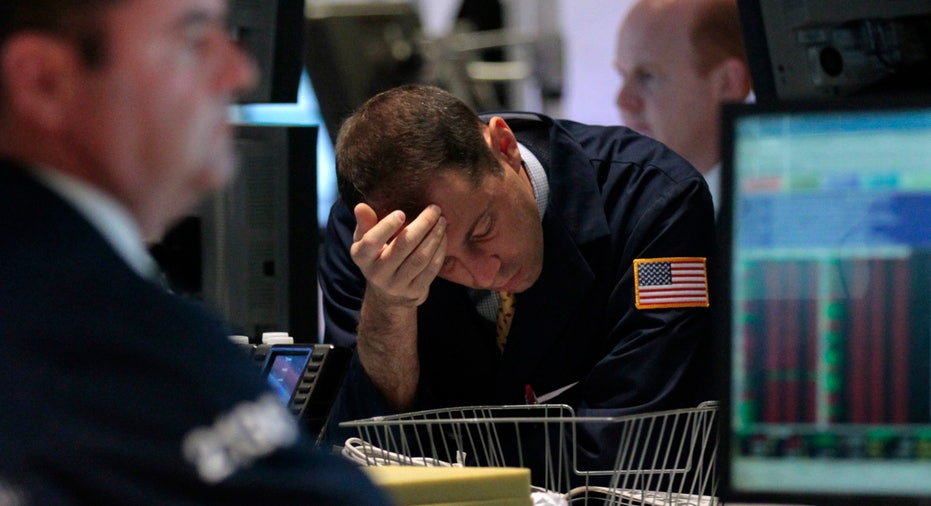A Gruesome Week: Wall Street Crushed in Worst Weekly Plunge in Years

FOX Business: The Power to Prosper
Despite moving modestly higher on the day, stocks were pummeled this week after economic and euro zone dread gripped market participants across the world, igniting a global selling frenzy and the blue chips' steepest fall since the depths of the 2008 financial crisis.
Today's Markets
The Dow Jones Industrial Average rose 37.7 points, or 0.35%, to 10,771, the S&P 500 gained 6.9 points, or 0.61%, to 1,136 and the Nasdaq Composite climbed 27.6 points, or 1.1%, to 2,483. The FOX 50 rose 5 points to 831.
Despite only making a modest move on the day, many assets experienced their worst week in many years. The blue chips tumbled 6.4%, the S&P 500 plunged 6.4% and the Nasdaq slid 5.3%.
Gold shed close to 10% over the course of the week -- the biggest drop on a percentage basis in 28 years. Meanwhile, in energy markets, oil tumbled $8.11 per barrel, or 9.22%, to $79.85 over the same period -- the steepest retreat since May.
Traders raced into the safety of Treasury bonds; indeed, the yield on the 10-year note repeatedly touched record lows, although made a modest comeback on Friday, sitting at 1.833%.
On Friday, about half of the 30 Dow components were recently in the green -- led by Bank of America (NYSE:BAC) and Caterpillar (NYSE:CAT). Blue chips like Hewlett-Packard (NYSE:HPQ) and DuPont (NYSE:DD) still faced substantial losses.
Volatility, as measures by the VIX index, was up 0.87% on the day -- a stark contrast from the big jump on Thursday.
Market participants have been reacting to renewed concerns that the global economy is careening off course, and that policymakers broadly aren't taking enough steps to stem the fall. In particular, the euro zone sovereign debt crisis has been seen as a significant destabilizing factor amid fears a default by a country like Greece could send shockwaves that could paralyze the financial system.
The Group of 20 major economies, including the United States, European Union and China, issued a statement late Thursday saying that it stands committed to "take all necessary actions to preserve the stability of banking systems and financial markets as required."
While European markets pointed higher as a result, they quickly fell back into the red, as did U.S. stock futures. There is a concern that policymakers' statements have often not translated into action, analysts say.
"Hopes for some decisive action resulting from this week’s [Group of 20] meeting have helped to calm some nerves in the second half of the day" in European markets, David Jones, chief market strategist at IG Index, wrote in a note to clients. However, "markets have been tired of continual talk over drawing a line under the crisis, but very little in the way of action."
Additionally, the European Commission said Friday that there is no big push to recpitalize European banks, which goes counter to a report on Thursday by the Financial Times that it would move to aid struggling mid-tier European banks. The EU has already provided nearly $600 billion in support to the embattled banking sector there.
Euro zone banks, particularly French ones like BNP Paribas and Credit Agricole, have seen their share prices plummet over worries that a sovereign default would severely damage their capital position.
Corporate News
Hewlett-Packard (NYSE:HPQ) ousted Leo Apotheker as its chief executive, putting former eBay (NASDAQ:EBAY) CEO Meg Whitman in his place. Apotheker had been strongly criticized during his time running the computing giant.
Foreign Markets
The English FTSE 100 gained 0.5% to 5,067 and the German DAX rose 0.63% to 5,197.
In Asia, the Chinese Hang Seng fell 1.4% to 17,669 and Japanese markets were closed for a holiday.



















